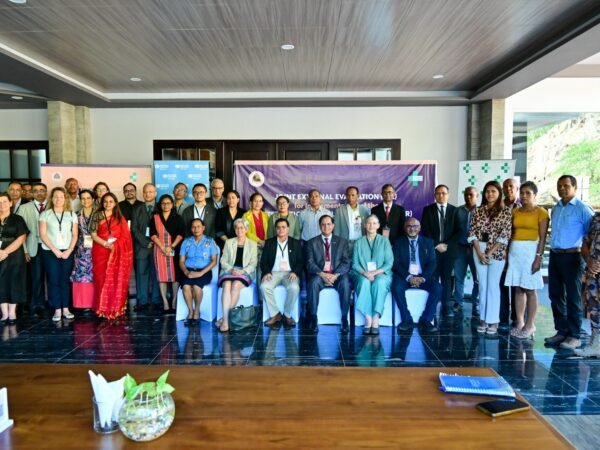Dili, November 19. 2024 (Média Democracia) – Nearly 23 international experts from nine countries gathered in Timor-Leste to conduct the second Joint External Assessment (JEA) which began on Monday this week.
The Deputy Minister for Institutional Strengthening of the Ministry of Health, José dos Reis Magno informed that this important process was last held in 2018, it is very important to evaluate Timor-Leste’s capacity to prevent, detect and respond to public health threats based on the International Health Regulations (IHR, 2005).
“The JEA brings together government departments and 23 global experts from the United States, India, Switzerland, Australia, Thailand, Bhutan, Nepal, Myanmar and Mongolia. This week they will evaluate 19 technical areas and 56 indicators, to deepen key aspects such as disease awareness, laboratory systems, emergency response and antimicrobial resistance. The assessment includes visits to health facilities, laboratories and entry points including airports and seaports,” said José dos Reis Magno, Undersecretary for Institutional Strengthening of the Ministry of Health.
He continued, the opening ceremony on Monday was attended by 200 representatives from a number of ministries, reflecting the importance of JEA.
“The health JEA is an enlightening exercise, to highlight its potential in helping the country identify its strengths, address gaps and take decisive action, “Let us use this opportunity to listen and learn from experts from other countries,” he said, referring to other departments such as the National Health Laboratory, INSP-TL, Vigilance, Immunization, SNAEM/HEOC, veterans and security agencies present here.” He added
As WHO representative in Timor-Leste, Arvind Mathur said that the JEA is an important step to ensure Timor-Leste is safe and healthy, while contributing to a stronger global health landscape. He highlighted recent global crises such as COVID-19 and Mpox as well as local issues such as malaria, dengue and chikungunya as urgent reminders of the importance of prevention, preparedness and resilience.
Dr. Mathur also expressed his gratitude to the Ministry of Health for their enthusiasm in participating in the JEA, “This reflects a transparent and proactive approach to solving existing problems and identifying opportunities for health improvement. Also, thanks to donors and partners, especially DEAT, KOICA, Indonesia and Thailand for their assistance.”
He continued that Dra Karen Sliter who led the External Assessment team, praised Timor-Leste for volunteering to organize the second JEA, “The JEA expert team came as friends and auditors with the same goal: to evaluate various health sectors and get attention on which areas need to be followed up.
To clarify, the JEA evaluates a region’s capacity to detect and respond to public health threats through a collaborative approach. A team of external experts, including WHO, evaluates structural indicators of health system utilization. Performance is assessed on a scale of 1 to 5, with 1 indicating “no capacity” and 5 indicating “sustained capacity.” Based on this assessment, recommendations are made for improvement. The JEA will then develop a health and security action plan to strengthen community preparedness, protection, and response to emergencies. Following consultations and field visits, the team will offer its preliminary recommendations on Friday (20 November).
Reported by : Nelfiano
Picture by : Media Officer

